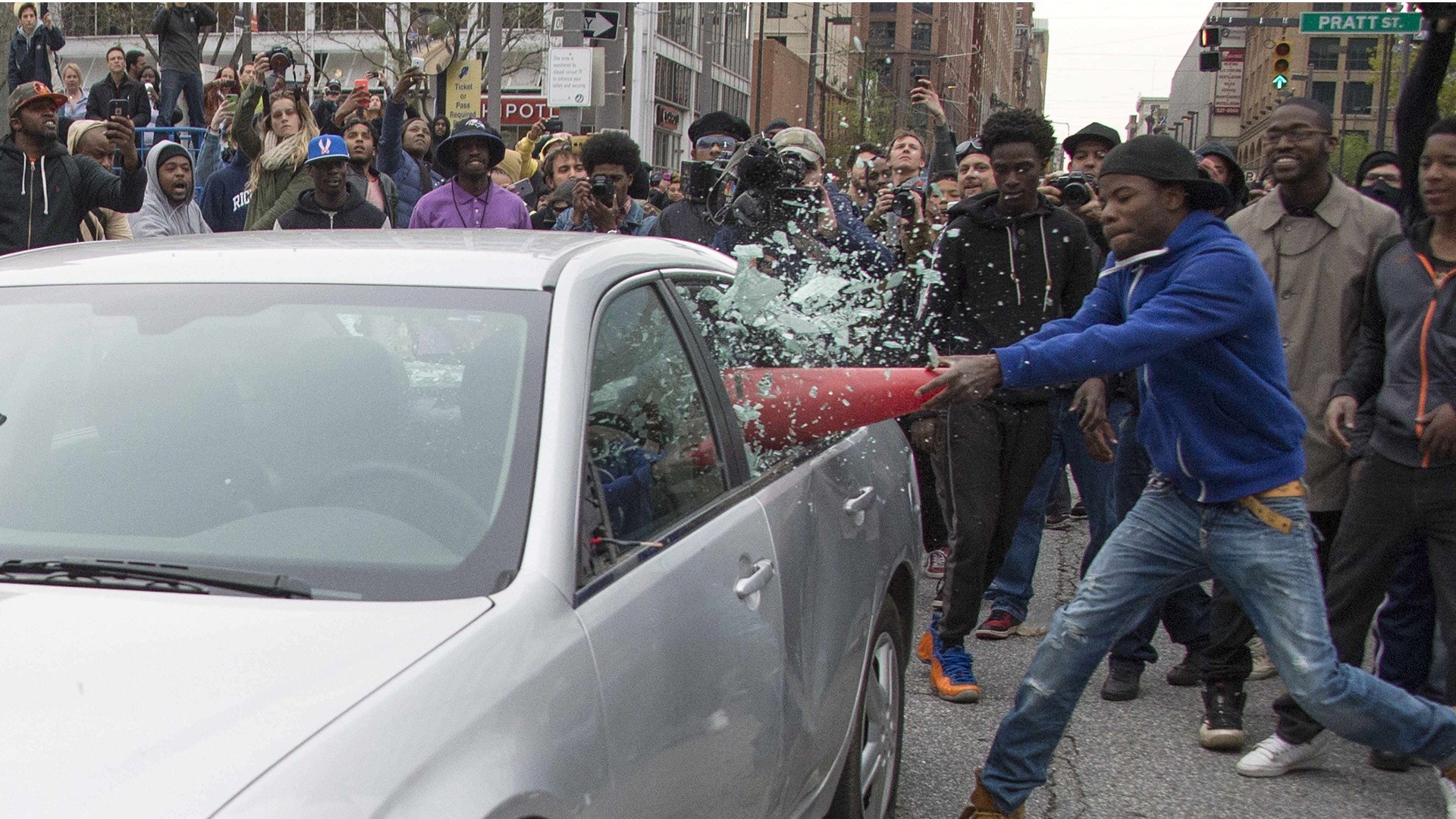The city of Baltimore and the federal government unveiled the terms of a sweeping 227-page consent decree Thursday morning, a legal document mandating reforms to the local police force. The deal emerged 21 months after 25-year-old Freddie Gray died while in police custody in April 2015, and five months after a scathing Department of Justice report alleged a litany of unconstitutional, racist, and just plain mean-spirited policing practices in Charm City."Through this agreement, we are moving forward together to heal the tension in the relationship between BPD and the community it serves," US attorney general Loretta Lynch said at a press conference in the city. "The agreement is robust and comprehensive," she added, emphasizing that it was negotiated to ensure effective policing, restore the community's trust in law enforcement, and advance the public and police officers' safety.Like 14 similar deals currently being enforced on law enforcement jurisdictions across America, the Baltimore consent decree lays out a number of new rules and systemic changes. Among other things, it calls for a community-oversight task force to recommend tweaks to the current civilian oversight systems, insists on respect for individuals' First Amendment rights to protest and monitor the police, imposes guidelines on proper use of force and transport of people in custody, protocols on constitutional stops, searches, and arrests, requirements for annual "community policing" trainings for all officers, and new procedures for conducting sexual assault investigations. While the BPD has moved to implement some of these reforms already—which the decree acknowledges and commends—Baltimore now has a legal tool to help cure what critics believe is a broken culture of often-brutal policing.The deal also represents one of the last chances for the Obama administration's activist Justice Department to leave its fingerprint on the American criminal justice system—and to rein in rogue cops at the center of Black Lives Matter protests. The only question is how aggressively a new, law-and-order happy White House under Donald Trump will enforce it.The Baltimore City Fraternal Order of the Police, the local police union, quickly issued a critical statement after news of the decree broke Thursday, bemoaning the fact that they were not included in the negotiations. "Despite continued assurance by representatives of the Department of Justice that our organization would be included in the Consent Decree negotiations, no request to participate was ever forthcoming and we were not involved in the process," the statement said. "As we were not afforded an advance copy of the agreement, neither our rank and file members who will be the most affected, nor our attorneys, have had a chance to read the final product and, as such, we will not have a comment now. Be assured, however, that a response will be forthcoming at the appropriate time."Police unions in other cities have worked to block reform efforts through their collective bargaining agreements, and Baltimore activists say they are bracing for similar resistance from the local FOP. The Baltimore police union has opposed reforms to the Law Enforcement Bill of Rights, which governs how officers accused of misconduct are treated in Maryland. Some activists say the statewide law stands as the city's biggest barrier for meaningful police accountability and transparency.In October, for its part, the Baltimore FOP issued its own recommendations for inclusion in the consent decree, calling for things like increased whistleblower protections, more cops, and technology upgrades.Check out our look at how a Freddie Gray protester got slapped with a massive bail. During his confirmation hearings for US attorney general this week, Alabama senator Jeff Sessions expressed skepticism about using consent decrees to force change in police departments. "These lawsuits undermine the respect for police officers and create an impression that the entire department is not doing their work consistent with fidelity to law and fairness," he said. Sessions also once wrote that court-ordered consent decrees were "undemocratic" and "dangerous," which taken with his more recent comments has served to send a chill down the spine of police reformers nationwide.Still, outgoing attorney general Lynch assured the public at Thursday's press conference that the consent decree "will live on past this administration." After all, it is court-enforceable, and there will be an independent monitor overseeing the agreement.But Lawrence Brown, an assistant professor of public health at Morgan State University, told VICE he has "no faith in Trump's folks, especially if it's Beauregard Sessions" and that he expects the police union to oppose key elements of the agreement. "Other means will have to be utilized to ensure this is enforced," he said, pointing to ongoing efforts to change or repeal the Law Enforcement Bill of Rights.Meanwhile, DeRay McKesson, a Black Lives Matter national activist and administrator in the Baltimore City Public School system, praised the agreement on Twitter for its scope, and noted that it's the first consent decree he's ever seen to include school police.
During his confirmation hearings for US attorney general this week, Alabama senator Jeff Sessions expressed skepticism about using consent decrees to force change in police departments. "These lawsuits undermine the respect for police officers and create an impression that the entire department is not doing their work consistent with fidelity to law and fairness," he said. Sessions also once wrote that court-ordered consent decrees were "undemocratic" and "dangerous," which taken with his more recent comments has served to send a chill down the spine of police reformers nationwide.Still, outgoing attorney general Lynch assured the public at Thursday's press conference that the consent decree "will live on past this administration." After all, it is court-enforceable, and there will be an independent monitor overseeing the agreement.But Lawrence Brown, an assistant professor of public health at Morgan State University, told VICE he has "no faith in Trump's folks, especially if it's Beauregard Sessions" and that he expects the police union to oppose key elements of the agreement. "Other means will have to be utilized to ensure this is enforced," he said, pointing to ongoing efforts to change or repeal the Law Enforcement Bill of Rights.Meanwhile, DeRay McKesson, a Black Lives Matter national activist and administrator in the Baltimore City Public School system, praised the agreement on Twitter for its scope, and noted that it's the first consent decree he's ever seen to include school police.
Advertisement
Advertisement
Advertisement

Skepticism that the new administration will hold local cops' feet to the fire abounds, however. One member of Baltimore Bloc, a grassroots group focused on police reform, told VICE that she and her fellow activists have no confidence in a Trump DOJ to enforce the consent decree, even if they had their doubts about enforcement under a Hillary Clinton DOJ, too. "I think Baltimore Police is going to resist it all the way, FOP's statement is already obstructionist as hell, and it was the police gleefully violating people's rights that got us here," the activist said.The city has been under pressure to finish the consent decree before Inauguration Day. That's because once the agreement is finalized—it still needs court approval—a federal judge will be empowered to enforce it, no matter who is president or US attorney general. Still, legal experts generally agreethat if the police department or city political leadership fail to follow through on the terms of the agreement, it will be up to Trump's Department of Justice to take them to court to compel change.Follow Rachel M. Cohen on Twitter.
